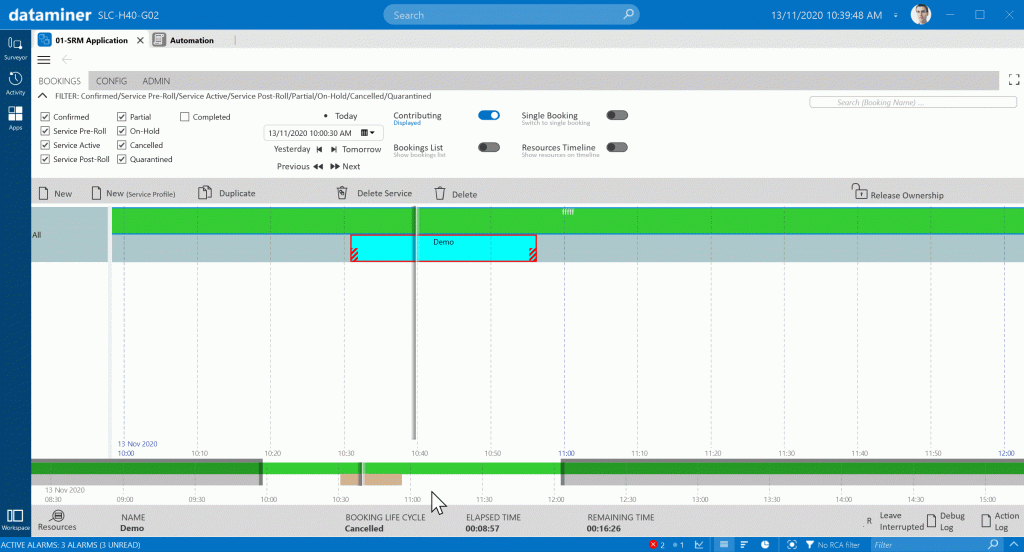Version 1.2.7 of the SRM framework has just been released. This release contains several new features and enhancements, bringing extra efficiency during project deployment and during operations.

Migrating an SRM configuration from a staging platform or from an internal DMA to a production setup is now more straightforward, thanks to the function migration scripts. These scripts will grab all components supporting a function (profile parameters, profile definitions, function definitions, profile-load scripts) and store them in one single package. The script deploying the package will take care of resolving conflicts, in case components with the same name or reference already exist in the destination DMS. As it was previously necessary to manipulate individual files and components and to handle conflicts manually, this feature will drastically reduce the time to deploy or migrate a function.
Not only the migration time has been improved, but the time to create a booking can now also be reduced using the service profile feature. While this feature was already supported in previous releases, service profiles have now been fully integrated in the SRM framework and user interface. Instead of selecting individual function profiles and resources for each node, operators can now spin up a new service by just selecting one single service profile instance, containing the definition of all individual profiles required for the configuration of the individual resources in the booking. This will make it considerably easier, less time consuming, and safer for end users to create bookings, as all individual profiles will be combined into one single service profile instance beforehand, with all the necessary validation.
Data Transfer Rules (DTR), which make it possible to transfer parameter values between nodes, were introduced in the framework some time ago already. With DTR, end users do not have to provide the same value multiple times (e.g. the same multicast IP on encoder and decoder functions). These are also often used to force the setting of a required capability on another node and use it to filter down the list of available resources (e.g. when a satellite is selected, only antennas capable of receiving its signal will be listed). DTR have now been extended to transfer data between a main booking and contributing bookings.
Finally, contributing bookings can now be edited directly. In the past, if you wanted to change any settings of a contributing booking, you had to delete and re-create it. This new feature will therefore also greatly reduce the amount of time people need to spend on managing their bookings.
For a complete list of the features and enhancements of SRM 1.2.7, check the release notes.
Great addition, the ability to modify contributing bookings. Thank you.
Love those migration scripts, those will really facilitate the design and deployment process significantly. Great work.
Excellent – any customer will benefit from easier operations, whereas devops engineers will have a better environment to continuously evolve and extend the automation in their operations.